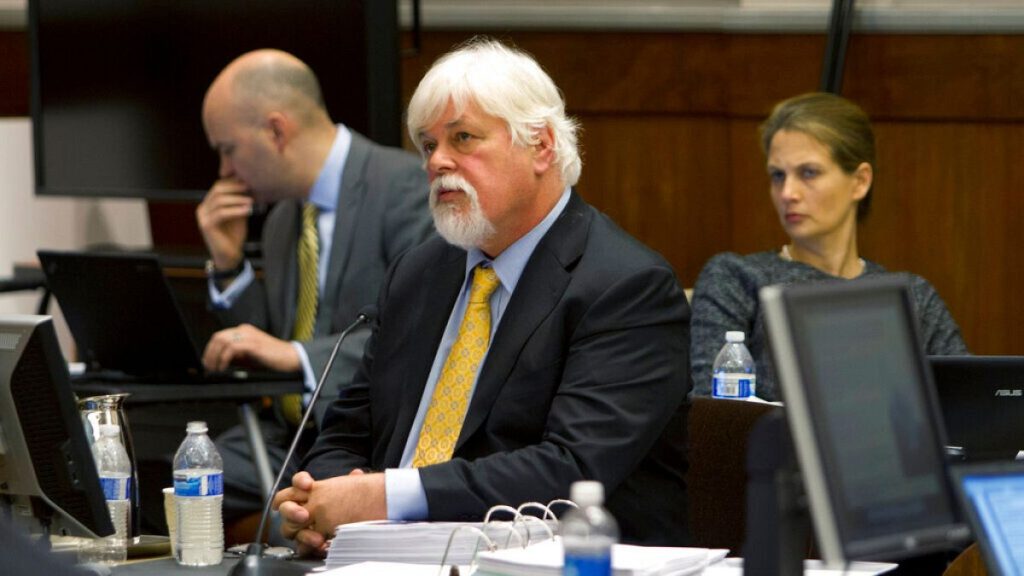The founder of Sea Shepherd, Paul Watson, has applied for political asylum in France to avoid a trial in Japan where he faces up to 15 years in prison. Following his arrest in Greenland, the custody of Watson has been extended until 13 November, as Denmark considers extradition requests from Japan. Watson is accused of ordering the captain of his ship to throw explosives at a Japanese whaling vessel, obstructing its official duties. Despite calls for his release from protesters, celebrities, and EU lawmakers, Denmark has yet to make a decision regarding his extradition. Watson’s request for political asylum in France remains unanswered, with supporters viewing it as a symbolic gesture to secure his release.
Watson’s legal troubles stem from his direct action tactics as a marine conservation activist, particularly in campaigns to protect whales, dolphins, and other marine animals. His departure from Greenpeace in 1977 led to the establishment of Sea Shepherd, known for its confrontational approach to combating whaling practices. The group has received support from celebrities and gained notoriety through the reality television series “Whale Wars”. Critics argue that Watson’s arrest is part of an effort to undermine Sea Shepherd’s activism and legitimize Japan’s whaling practices, which the government claims are sustainable and based on scientific research.
The extradition request from Japan presents a dilemma for Danish authorities, as they weigh legal obligations against human rights and environmental advocacy considerations. Watson’s supporters have rallied in France and Belgium, with protests outside embassies and expressions of solidarity on social media. Despite his controversial methods, many view Watson as a dedicated environmentalist and advocate for marine life. The case has garnered significant attention, with prominent figures such as Pierce Brosnan voicing their support for Watson and his cause.
President Emmanuel Macron of France has yet to respond to Watson’s asylum request, leaving the activist’s fate uncertain. The outcome of the extradition decision remains pending, with implications for both Watson’s personal freedom and the larger debate on marine conservation. The controversy surrounding Sea Shepherd and its founder highlights the complexities of environmental activism and the challenges faced by those who take a more aggressive stance in defense of wildlife. As the legal battle continues, the case of Paul Watson serves as a reminder of the ongoing conflicts between conservation efforts and entrenched practices in the fishing industry.


